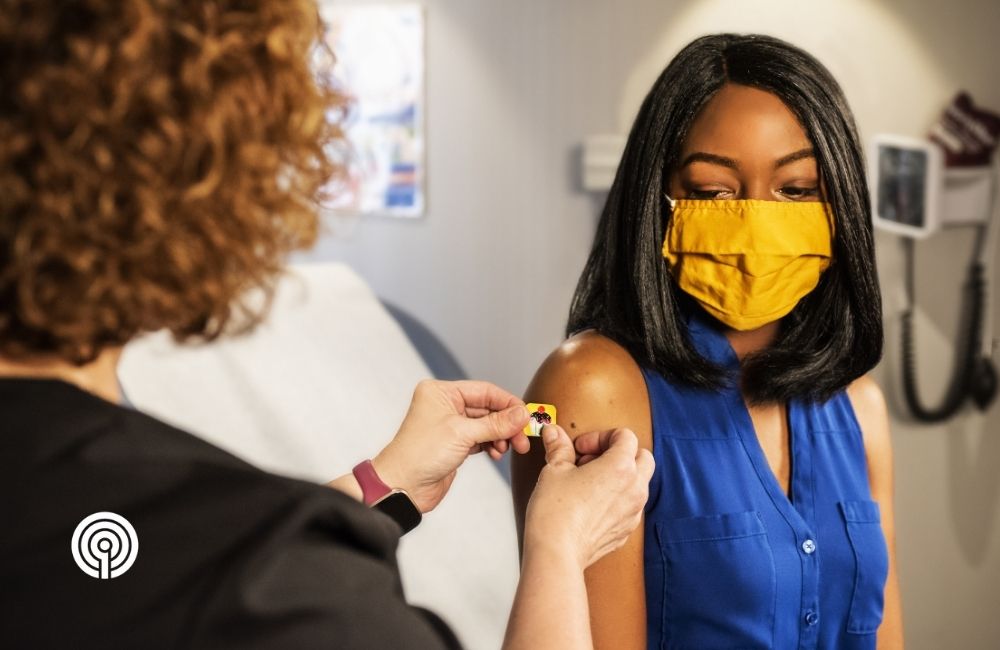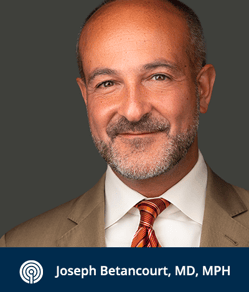News Media Call on Dr. Betancourt to Illuminate COVID-19 Disparities

Top media outlets, including NPR and CNN, have turned to Quality Interactions Co-Founder, Dr. Joseph Betancourt, to better report on the critical issue of health disparities and the COVID-19 pandemic.
Even in the absence of adequate race and ethnicity data, a clear picture of disparities in COVID-19's impact has nonetheless emerged: Black and Latino communities are the hardest hit. This is not due to features of the virus itself, but is an indicator of social conditions—including population density and socioeconomic status—which put black and Latino individuals at higher risk for contracting and perishing from the respiratory illness.
 Dr. Betancourt is on the front lines of the epidemic at Massachusetts General Hospital, where he serves as Vice President and Chief Equity and Inclusion Officer, as well as a primary care physician. As a leading expert in health equity, Dr. Betancourt has been named to the City of Boston COVID-19 Health Inequities Task Force.
Dr. Betancourt is on the front lines of the epidemic at Massachusetts General Hospital, where he serves as Vice President and Chief Equity and Inclusion Officer, as well as a primary care physician. As a leading expert in health equity, Dr. Betancourt has been named to the City of Boston COVID-19 Health Inequities Task Force.
This summary of Dr. Betancourt's recent interviews provides a primer on how COVID-19 has created a perfect storm for communities of color and offers direction for how municipalities and institutions should apply immediate efforts to stem the tide.
"If we think about this virus and how it spread - a respiratory virus - you begin to really understand. What is the environment - what are the social conditions that make a ripe opportunity for spread?"
Speaking with NPR's Nina Martin on Morning Edition, Dr. Betancourt outlined structural issues in our society that have been particularly disadvantageous for neighborhoods with high population density and lower socioeconomic status. Vulnerable conditions include:
- More family members are living in smaller shared spaces
- Individuals are more likely to be essential workers who rely on public transportation
- Limited ability to obtain face masks, sanitizing wipes, etc.
- Social distancing is more likely to be an unobtainable luxury
"We also know that many of those communities have lower access and less access and less easy access to the health care system."
The racial and ethnic minorities more likely to be living in COVID-19 hotspots face greater risk of exposure, but the disadvantage doesn't stop there. Compounding the equation:
- Minorities tend to suffer at greater rates from many of the co-morbid conditions (e.g.; diabetes, lung disease, heart disease, and obesity) that increase chances of a poorer outcome with a coronavirus infection.
- Language barriers limit transfer of accurate information about the virus, as well as essential communication with clinicians in the absence of professional medical interpreters.
- Historic mistrust of the healthcare system, partnered with limited access to care (e.g., insurance, transportation, etc.) prevents people from receiving necessary services in time of need.
"We need to really understand that this virus doesn't discriminate, that these invisible borders between towns, between our neighbors, they don't exist. Our ability to really deploy resources and prevent these hotspots from emerging will ultimately keep the rest of our state safe, and I guess for me as a doctor, keep me and my fellow health care workers from being overwhelmed."
Speaking with WGBH's Mark Herz, Dr. Betancourt described four items he sees as essential to a "full court press" to prevent the continued spread of COVID-19 in vulnerable communities:
- Transparency of data at the state level to identify hotspots, rates of growth, predict other hotspots, and engage mitigation strategies.
- Deliver resources by literally going door-to-door to ensure that people who cannot social distance and/or have multiple family members in one home have adequate masks, hand sanitizer, wipes, and thermometers.
- Expand testing quickly, which could include indexing one or two people in a household to assume all members have been exposed, and respond with necessary mitigation strategies.
- Create alternative housing (in unused hotels, college dorms, etc.) for people testing positive to self isolate and prevent the continued spread of the disease.
"We have a collective responsibility to address the needs of our most vulnerable."
While there is a clear moral imperative to protect the vulnerable among us, COVID-19 presents a practical urgency as well. As the virus spreads through our communities, we are only as safe as those of us who are most at risk. A return to normalcy, or "the new normal," will require strategic initiatives to protect black and Latino communities, low-income communities, limited-English-proficient communities, and other communities that are susceptible to rampant spread and higher death rates due to COVID-19. Quality Interactions will continue to guide the conversation on this critical issue.
Access more of Dr. Betancourt's most recent interviews in full by clicking the links below.
How COVID-19 Patients Are Affected By Health And Other Disparities
NPR, Morning Edition with Nina Martin
April 15, 2020
Massachusetts COVID-19 Data On Race And Ethnicity Reveals Disparities Among Minorities
WGBH, Mark Herz
April 9, 2020
Minority Communities Are Being Hit Harder By The Coronavirus
WBUR, Radio Boston
Tiziana Dearing and Paris Alston
April 8, 2020
For Non-English Speakers, Difficult Language Barriers Become Dire Amid Outbreak
WBUR News
Simon Riós
April 7, 2020
CORONAVIRUS Y CONDICIONES PREEXISTENTES
CNN en Español
Guillermo Arduino
April 9, 2020